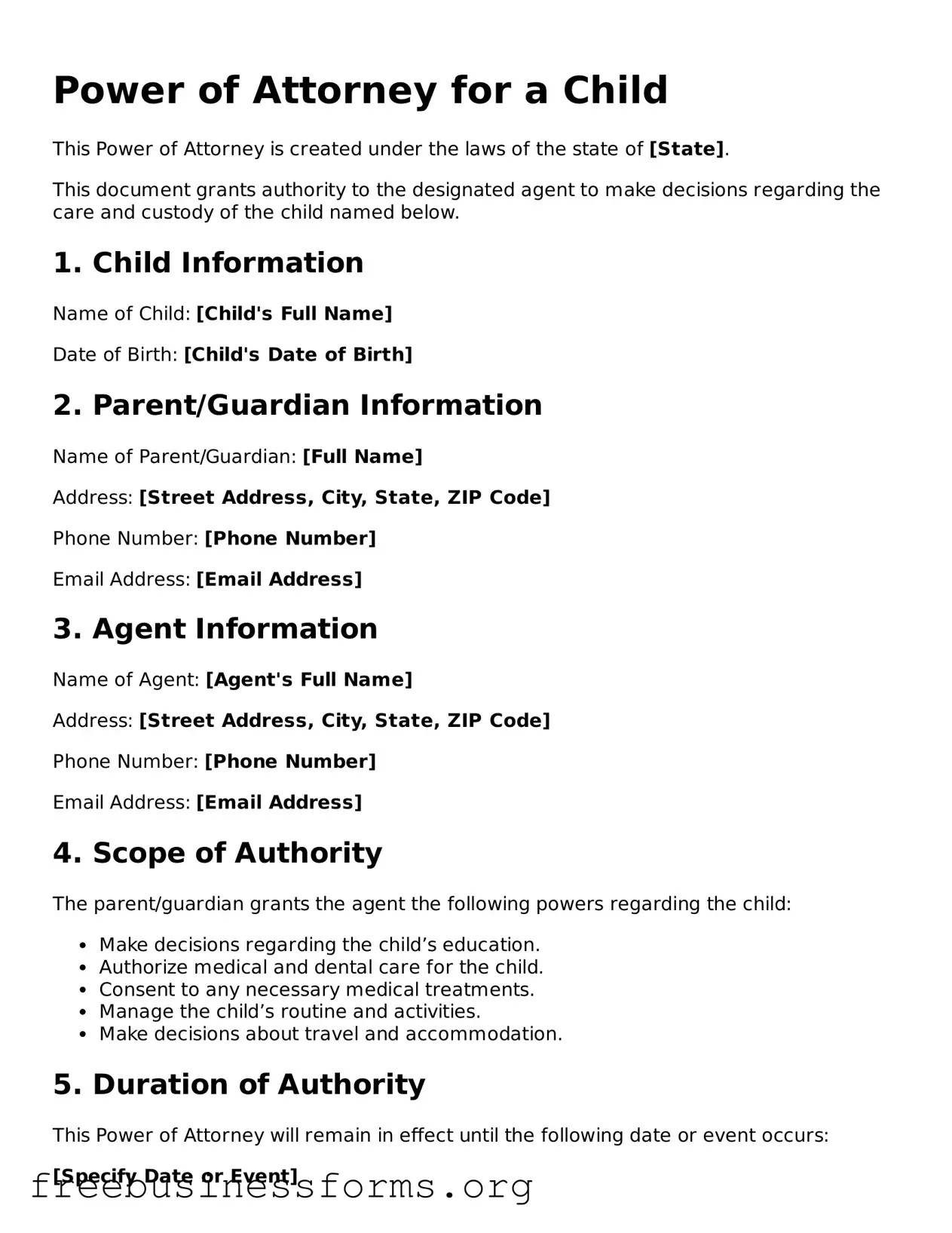Official Power of Attorney for a Child Form
The Power of Attorney for a Child form is a legal document that allows a parent or guardian to grant another adult the authority to make decisions on behalf of their child. This arrangement can be crucial in situations where the parent is unable to care for the child temporarily, such as during travel or medical emergencies. Understanding how this form works can provide peace of mind and ensure that your child's needs are met even when you cannot be present.
Open Form Here

Official Power of Attorney for a Child Form
Open Form Here

Open Form Here
or
↓ PDF File
Quickly complete this form online
Complete your Power of Attorney for a Child online quickly — edit, save, download.